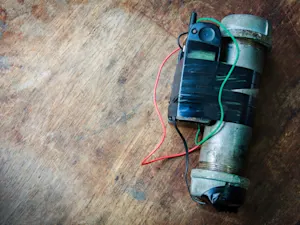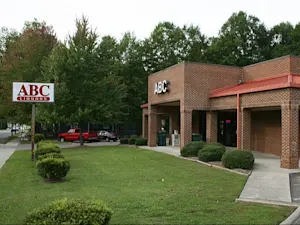
FDA Issues Urgent Warning About Fake Ozempic® in US Supply Chains
The Food and Drug Administration (FDA) has issued an urgent warning to consumers about counterfeit Ozempic®, a drug designed to treat Type 2 diabetes but often sought for its weight-loss effects. These falsified medications have infiltrated legitimate supply chains, posing serious health risks due to questionable ingredients and manufacturing practices.
Why the Counterfeit Market Exists
Ozempic's rise in popularity as a weight-loss aid has fueled its demand, leading to shortages for diabetes patients who rely on the drug. This scarcity, coupled with the drug's high price, has created a thriving counterfeit market. Fake versions of Ozempic are sold online, through social media, and even in some legitimate pharmacies, according to the FDA and the World Health Organization (WHO).
Counterfeiters often target highly sought-after medications, making it easy to prey on consumers looking for affordable or quick solutions. The counterfeit drugs are often sold at discounted rates, but their ingredients, sterility, and safety cannot be guaranteed.
A surge in Ozempic's off-label use for weight loss has compounded the issue. Marketed originally to help people with Type 2 diabetes control blood sugar levels, the drug also reduces appetite, a side effect that has skyrocketed its demand among those seeking rapid weight loss. This unintended popularity has not only led to global shortages but has also incentivized criminals to produce fake versions of the drug.
Hidden Dangers in Counterfeit Ozempic
The FDA's analysis of seized products from the U.S. supply chain revealed alarming issues. Fake Ozempic pens were found with counterfeit needles, unverified sterility, and mismatched labels. The potential consequences for users include infections, exposure to unknown substances, or harmful ingredients like insulin, which could cause hypoglycemia.
According to the FDA, five adverse events linked to counterfeit Ozempic have been reported to date, including symptoms like nausea, vomiting, and diarrhea — common side effects of the authentic drug. While these cases have not been life-threatening, the risk remains high as fake products continue to circulate.
The risks go beyond the immediate side effects. Counterfeit drugs may contain impure semaglutide or research-grade chemicals, which can trigger severe allergic reactions. In some instances, fake Ozempic products have been discovered to include entirely different medications, such as insulin, leading to life-threatening situations like dangerously low blood sugar.
A Global Problem With Local Impacts
Counterfeit Ozempic is not just a U.S. issue — it's a global concern. According to the WHO, falsified batches of Ozempic have been found in the United States, the United Kingdom, and Brazil. Authorities have seized fake products in regions as diverse as Europe and South America, highlighting the widespread nature of the problem.
This counterfeit market affects both patients and healthcare systems. For legitimate Ozempic users, shortages caused by counterfeiters reduce access to authentic products. For healthcare providers, the rise of fake drugs complicates treatment plans, as adverse events tied to counterfeit products can mask the actual health condition requiring attention.
Who's Most at Risk?
Anyone seeking Ozempic outside traditional, licensed pharmacies is vulnerable. Many counterfeit products are sold online without proper prescriptions, often disguised as authentic medications. The WHO warns that some falsified drugs may not contain semaglutide — the active ingredient in Ozempic — and could include substances like research-grade chemicals not safe for human use.
Health care facilities and retail pharmacies are not immune. Novo Nordisk®, Ozempic's manufacturer, confirmed that counterfeit pens have been detected in U.S. pharmacies. This underscores the importance of vigilance even when purchasing through seemingly trustworthy channels.
The demographic most at risk includes people seeking quick and affordable solutions for weight loss. Social media influencers promoting "quick fixes" often unknowingly encourage followers to seek out unregulated sources, making younger consumers particularly susceptible.
How to Protect Yourself
To ensure safety, the FDA recommends sourcing Ozempic only from authorized distributors and licensed pharmacies. Consumers and healthcare professionals should carefully inspect drug packaging and pen labels for inconsistencies, such as misspelled text or flimsy labels that don't adhere well to the pens.
Here are practical steps to safeguard against counterfeit drugs:
- Verify the Source: Purchase medications only from licensed pharmacies or authorized distributors.
- Check the Lot Number: Look for discrepancies in lot numbers or serial numbers listed on the packaging.
- Inspect the Packaging: Watch for irregularities, such as blurred printing or unexpected language translations.
- Be Wary of Discounts: Offers that seem too good to be true often are. Significant price reductions could signal a counterfeit product.
- Report Suspicious Products: Alert the FDA or Novo Nordisk if you suspect a counterfeit product.
Consumers can also use online tools provided by Novo Nordisk and other pharmaceutical companies to verify the authenticity of their medications. These tools often include photos and detailed descriptions of legitimate packaging.
The FDA and WHO's Ongoing Efforts
Regulatory bodies are working tirelessly to curb the counterfeit drug epidemic. The FDA has seized thousands of counterfeit Ozempic units and is testing the components to understand their risks better. Meanwhile, the WHO has issued a global alert and is collaborating with national authorities to track and dismantle counterfeit networks.
Counterfeit medications are not limited to Ozempic. Similar issues have been reported with drugs like Wegovy® and Mounjaro®, which also contain semaglutide or similar compounds. Experts caution that as demand for weight-loss drugs rises, the counterfeit market will likely grow unless stricter regulations and enforcement are implemented.
Educational campaigns are another critical component of the fight against counterfeiting. By informing consumers about the dangers of fake medications and the importance of purchasing from authorized sources, public health organizations hope to reduce the market for these dangerous products.
Lessons for the Future
The counterfeit Ozempic crisis underscores the broader vulnerabilities in the global pharmaceutical supply chain. As more medications become popular for secondary uses — like Ozempic for weight loss — the risk of counterfeiting will likely expand. This highlights the need for enhanced traceability measures, such as serialized barcodes, to ensure the authenticity of pharmaceutical products.
Governments and private companies must work together to implement these technologies and educate consumers. Enhanced collaboration between international regulatory bodies can also help standardize anti-counterfeiting measures across borders, reducing the ability of counterfeiters to exploit regulatory gaps.
Why This Matters
Fake medications not only pose immediate risks to individual health but also undermine trust in the pharmaceutical industry. With counterfeit Ozempic infiltrating even legitimate supply chains, the need for public awareness and stricter oversight has never been more critical.
If you're using Ozempic for diabetes management or weight loss, take the time to verify your source. A moment of caution could prevent serious health risks.
The content provided on this website is for entertainment purposes only and is not intended to serve as legal, financial, safety or medical advice. While we strive to provide accurate and up-to-date information, the information on this website will not be comprehensive and may not be applicable to your specific situation.
References: FDA Warns Consumers Not to Use Counterfeit Ozempic (Semaglutide) | Global Alert Issued Over Fake Ozempic Drugs - WHO | Are You Sure Your Ozempic Is Real? Fakes Are on the Rise























